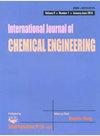A Review of Hybrid Process Development Based on Electrochemical and Advanced Oxidation Processes for the Treatment of Industrial Wastewater
IF 2.4
4区 工程技术
Q3 ENGINEERING, CHEMICAL
引用次数: 9
Abstract
Nowadays, increased human activity, industrialization, and urbanization result in the production of enormous quantities of wastewater. Generally, physicochemical and biological methods are employed to treat industrial effluent and wastewater and have demonstrated high efficacy in removing pollutants. However, some industrial effluent and wastewater contain contaminants that are extremely difficult to remove using standard physicochemical and biological processes. Previously, electrochemical and hybrid advanced oxidation processes (AOP) were considered a viable and promising alternative for achieving an adequate effluent treatment strategy in such instances. These processes rely on the production of hydroxyl radicals, which are highly reactive oxidants that efficiently break down contaminants found in wastewater and industrial effluent. This review focuses on the removal of contaminants from industrial effluents and wastewater through the integration of electrochemical and advanced oxidation techniques. These processes include electrooxidation, electrocoagulation/electroflocculation, electroflotation, photo-Fenton, ozone-photo-Fenton, sono-photo-Fenton, photo-electro-Fenton, ozone/electrocoagulation, sono-electrocoagulation, and peroxi/photo/electrocoagulation. The data acquired from over 150 published articles, most of which were laboratory experiments, demonstrated that the hybrid process is more effective in removing contaminants from industrial effluent and wastewater than standalone processes.基于电化学和深度氧化工艺处理工业废水的混合工艺发展综述
如今,人类活动的增加、工业化和城市化导致了大量废水的产生。通常,物理化学和生物方法被用于处理工业废水和废水,并在去除污染物方面表现出很高的效果。然而,一些工业废水和废水含有极难使用标准物理化学和生物工艺去除的污染物。以前,电化学和混合高级氧化工艺(AOP)被认为是在这种情况下实现适当的污水处理策略的可行且有前途的替代方案。这些过程依赖于羟基自由基的产生,羟基自由基是一种高活性氧化剂,可以有效分解废水和工业废水中的污染物。这篇综述的重点是通过电化学和先进氧化技术的结合来去除工业废水和废水中的污染物。这些工艺包括电氧化、电凝聚/电絮凝、电絮凝、光-芬顿、臭氧-光-芬ton、声-光-芬顿、光-电-芬顿,臭氧/电凝聚、声-电凝聚和过氧/光/电凝聚。从150多篇发表的文章中获得的数据表明,混合工艺在去除工业废水和废水中的污染物方面比独立工艺更有效,其中大多数是实验室实验。
本文章由计算机程序翻译,如有差异,请以英文原文为准。
求助全文
约1分钟内获得全文
求助全文
来源期刊

International Journal of Chemical Engineering
Chemical Engineering-General Chemical Engineering
CiteScore
4.00
自引率
3.70%
发文量
95
审稿时长
14 weeks
期刊介绍:
International Journal of Chemical Engineering publishes papers on technologies for the production, processing, transportation, and use of chemicals on a large scale. Studies typically relate to processes within chemical and energy industries, especially for production of food, pharmaceuticals, fuels, and chemical feedstocks. Topics of investigation cover plant design and operation, process design and analysis, control and reaction engineering, as well as hazard mitigation and safety measures.
As well as original research, International Journal of Chemical Engineering also publishes focused review articles that examine the state of the art, identify emerging trends, and suggest future directions for developing fields.
 求助内容:
求助内容: 应助结果提醒方式:
应助结果提醒方式:


